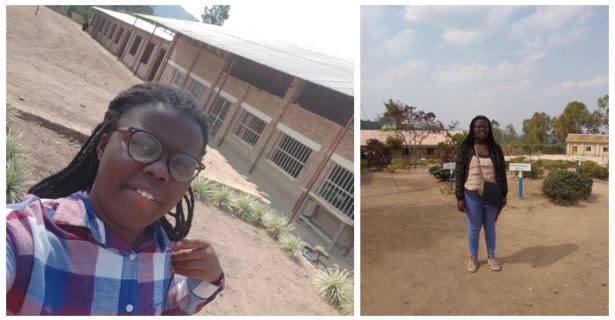As part of my Empower fellowship, this summer I was able to visit companies and social enterprises doing work related to water, sanitation, hygiene, and nutrition (WASH-N) as well as both primary and secondary schools. These visits were instrumental in gathering information for an initiative that I have been working on for the past year. ‘To the Waters’ is a social enterprise that aims at using engineering, innovation, and entrepreneurship to promote access to WASH-N in developing nations.
The second part of my market research was at primary and secondary schools in the Mbuye sector in Ruhango, Rwanda. Mbuye sector has approximately 41,000 residents based on the 2012 census. Mbuye sector has nine schools in total, and I was able to visit all of them. The purpose for visiting schools was to learn about the status of WASH-N. The goal for doing this was to learn more about how To The Waters can partner with schools to enhance the improvement of WASH-N in the future.
The first school I visited was Cyanza Primary School, which has 959 students. Cyanza, like many other schools, is a public school fully funded by the government, which implies that students do not pay anything. The school’s location is not near any water network like AIDER (a water treatment plant I was able to visit). To get water for school activities, they had to fetch it from public watertaps and rainwater tanks. One of the challenges the school officials told me about is the lack of durable handwashing stations.
I also learned from this visit that there is a room reserved for female students to support them during their menstrual periods. This room was started by the Imbuto Foundation, an organization that engages, empowers and educates the people of Rwanda through education,health, and socio-economic projects. The presence of this room in schools like Cyanza has allowed students, who would miss classes because of lacking menstrual hygienic products, go to school like other students. The room also presents a great opportunity to educate young women about menstrual and sexual health in general. The lack of access to menstrual products and water poses a unique challenge for girls.
I also visited several other schools, including Musenyi Primary School, Kabuga Primary School, Gisanga Primary School, Vunga Vocational Training Center, Mwendo Primary School, Kizibere Secondary School, Mbuye Secondary School, and Gishari Primary School. They all share similar challenges, which are access to drinking water and lack of durable handwashing stations. It was interesting to learn about these issues because it opened my eyes to the possibility of partnering with the Ministry of Education in Rwanda to help schools gain access to improve WASH-N. For instance, for drinking water, water fountains could be a great solution for providing drinking water regularly in schools. In addition, these school visits inspired me to think deeply about the best handwashing station that is relevant to the rural area context. As someone interested in innovation and entrepreneurship, coming up with a durable and economical handwashing station is something that I am passionate about.
WASH-N education is one of the initiatives of To The Waters in which we can educate people about improved WASH-N both in communal gatherings and schools. All the schools were interested in such partnership because they would like their students to be well informed about WASH-N, and students might take this information to their homes, which can have a secondary effect.
The school visits were tremendously insightful because it allowed me to be aware of the current status of WASH-N in schools and think about the ways in which To The Waters initiative can partner with schools to promote access to improved WASH-N. Being at these schools reminded me of how being part of the solution for water access and overall enhancement of WASH-N is something that I am truly passionate about and I look forward to continuing my work on this project.

